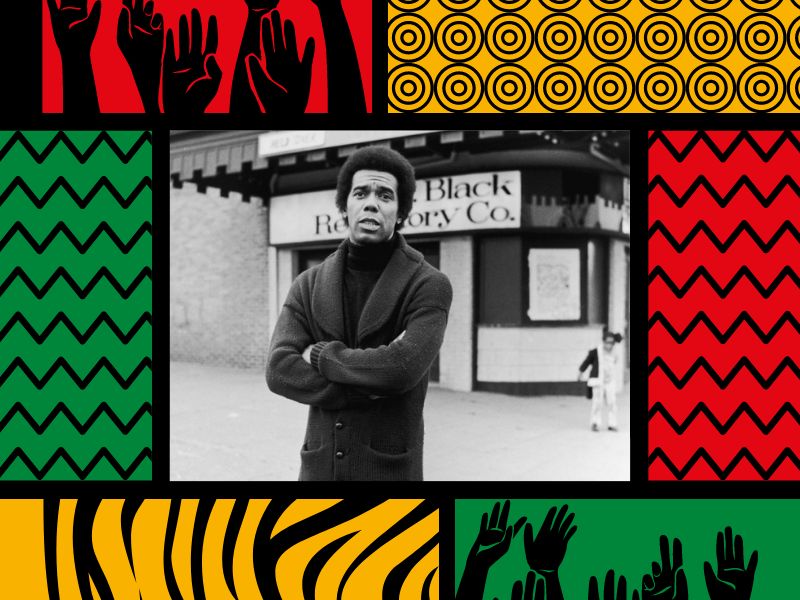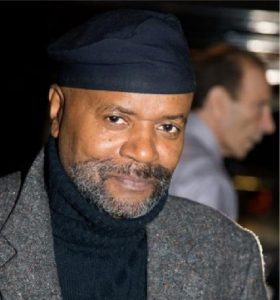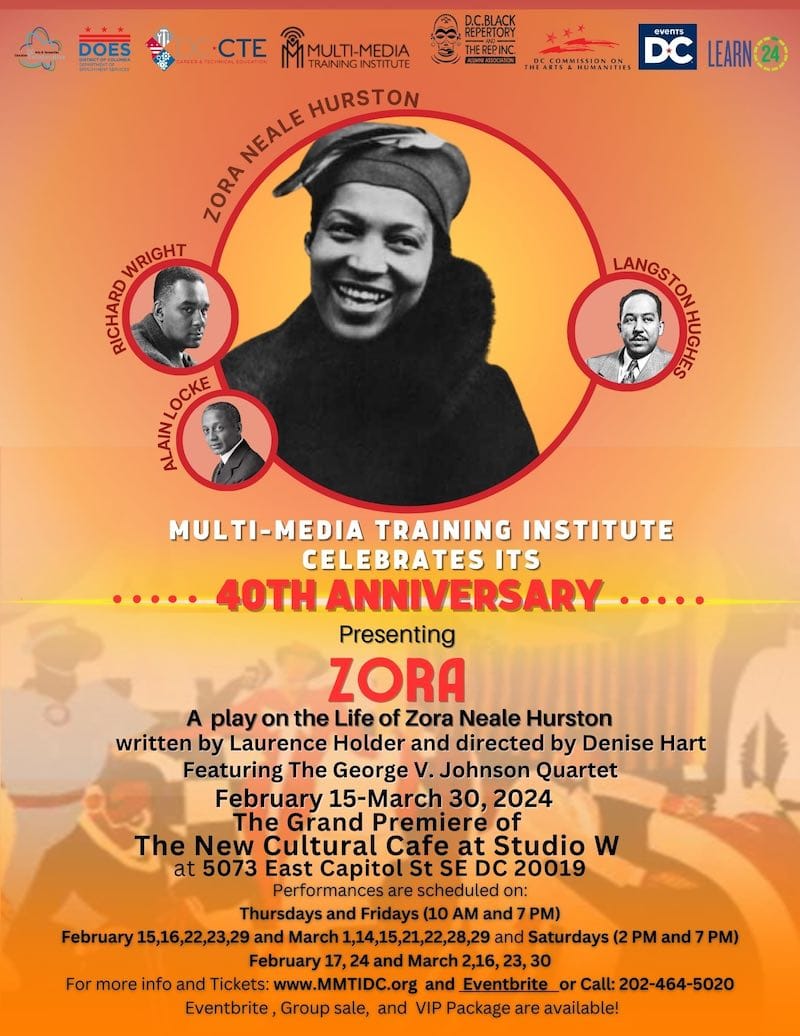By LeeAnét Noble and Lauretta Malloy
Jumuiya
Swahili for community
In 1971 producer and actor Robert Hooks returned to his hometown of Washington, DC, to start the DC Black Repertory Company, which would go on to serve as a healing balm for Black artists and the community after the assassination of Dr. Martin Luther King Jr. and the riots and protests that followed. Hooks knew art was needed in a new way. He connected with political figures from the democratic party, local leaders, and arts executives to hold a press conference and raise funds for the company.
By this point in his life, Hooks had an incredible portfolio of experience as a classical actor, producer, and director and as one of the three founders of the world-renowned Negro Ensemble Company with such alums as Samuel L. Jackson, Angela Bassett, Debbie Allen, Phylicia Rashad, Louis Gossett Jr., and many more.
The task and path of starting a Black theater troupe in Washington, DC, in the early 1970s came with many hurdles and blocks. Washington, DC, was recovering from literal fires and protests. These trials were also reflected in the art on stage. In this atmosphere, the DC Black Repertory Company, known as “The Rep,” became a cultural institution that produced Black plays, dance productions, and tuition-free training for aspiring students.

The Rep initially worked out of The Last Colony, a former movie theater in Petworth, and would later move to a firehouse on Georgia Avenue and New Hampshire. The company included actors, singers, and dancers. They not only performed classical and contemporary plays; they also workshopped new works. The Grammy-nominated group Sweet Honey in the Rock was a product of these workshops. The senior team on the artistic staff included Motojicho (Vantile Whitfield), Bernice Reagon, Louis Johnson, and Mike Malone. The Rep also started the first prison-based arts program in the United States.
The company performed such plays as The Blacks at the Kennedy Center, Coda, Owen’s Song, and more. At times they would connect the talents of the actors, directors, choreographers, dancers, and singers to create original experiences with dance pieces from the likes of Mike Malone, fused with original songs from Bernice Reagon with folkloric narratives.
Due to the challenges of grants and funding for arts programs at the time, The Rep closed its doors in 1976. The legacy continued, however, in the artists who created a space for Black creatives to find new voices in theater and share their art with the community at large. A few of the many voices that emerged from the project include renowned artists such as Kene Holiday, Lynn Whitfield, LaVerne Reed, Sweet Honey in the Rock, Grammy-nominated chart-topping singer Amii Stewart, and students across the District.
While The Rep operated in DC for only five years, Hooks’ career as a theater practitioner and activist has flourished for decades. In the decades since The Rep closed, he has performed in television series such as Seinfeld, Family Matters, Dragnet, and The Fresh Prince of Bel-Air, in the film Passenger 57, and in numerous theater productions.
The legacy started by The Rep continues through the works of DC theater legend Lyn Dyson, a graduate of Howard University who went from company member to Executive Director at The Rep. Dyson went on to found the Multi-Media Training Institute in Washington, DC, a renowned training and production company empowering individuals in the media arts, currently in its 40th year.

We had the honor of speaking with Lyn Dyson about his time at The Rep and his current projects.
What were some of the battles you faced as a Black theater troupe in the ’70s in Washington, DC?
Well, most Black community theaters have the talent to do the shows but there is the business side of things that has to be taken care of. A Black Arts Administrator was not a common thing back then, no one to continue fundraising efforts, or search for government and foundation funding, or do full-time marketing. That was the struggle for small theaters Black or white but even more so for Black theater. I think the Black Rep hung in there for several years because of the aura of Robert Hooks, but we moved into the Reagan era and the grants in the Black Power Cultural Explosion began to be curtailed and The Rep was no exception. If a strong infrastructure on the business side is not set up to withstand the funding drought, then you will not survive. No one had enough earned income to overcome not getting corporate donations and grants from the public or private sector.
You’ve worked in New York and many other cities — what would you say is unique about DC theater?
Well, DC has grown from a city/country town to a tight-knit theater-city town. Most of the theaters look out for each other here; they share actors and even share boards of directors and funding sources. Everyone knows everyone. Unfortunately, there is no major Black theater here so all that I just said does not apply to people of color because we do not have a theater to share anything with anyone. GALA is the closest institution for people of color that we still have. When the Rep was here, Woolly Mammoth was just getting started, Studio was just getting started, they had church and storefront startups; we had a 500-seat theater. Now they have million-dollar theaters with million-dollar budgets, and we do not exist anymore — what is wrong with that picture? There was a big upheaval at the DC Commission recently in how funding for years has been distributed, and changes have been made in the last few years, but even in the arts, institutional racism is real. But to get back to your original question, yes, DC theater is like a family tight-knit, unlike other places. Things are spread out…we are just trying to become part of that family…maybe we should start our own family…LOL…but seriously diversity will be good for this city.
Thank you for the sacrifices you made as young Black artists and the art you created to shift the culture. Where would you like to see DC theater go next?
We have to have an even playing field for people of color to build institutions in this city; the business community has to be involved with the government to provide opportunities for savvy art administrators to take advantage of when that opportunity comes up.
We have to create our own opportunities for jobs, roles, and positions; no one is going to just give it to us. We can no longer be the token ones. So institution building is critical to change in this city for those opportunities to be created. It starts with visionaries that tie government and the private sector together along with an understanding of how to do community organizing. With those tools in place, we can make some things happen in this city, I am optimistic.
Please tell us about your latest production and your new theater space in DC.
Well, I have to walk my talk…LOL. In Ward 7, there is presently no performing arts space. For that matter, I just found out at the DC Commission that we do not even have a Commission for Ward 7, but do not let me digress…. We are opening The New Cultural Cafe at Studio W at 5073 East Capitol Street SE in The Episcopal Church of Atonement, Amen! Not only are we opening a new space; we are opening a new show, Zora, a play on the life of Zora Neale Hurston written by Laurence Holder, directed by Denise J. Hart, and produced by yours truly. I am a Bison, Denise is a Bison, and Zora was a Bison — for those who do not know, that means Howard University. Zora was the co-founder of The Hilltop, Howard’s student newspaper, and they are now celebrating 100 years. So for us to be honoring Zora is very timely. She was a revolutionary artist, anthropologist, and author. She stood for social justice and spoke truth to power; she was the voice and Queen of the Harlem Renaissance. A powerhouse of a woman and one of the most prolific writers of the 20th century who died broke and in obscurity, until author Alice Walker resurrected her for the world to hear her stories, and wow…we have heard them and she keeps giving and giving a body of work as a social scientist and artist to this generation and generations to come. I am so proud to bring her to our community where she belongs. So yes, I have to walk my talk.
MMTI [the organization Dyson founded] is not a theater company per se. We train youth and adults in the media arts, video, IT, technical theater, arts admin, then we let them practice their craft on plays. I have been doing this for 40 years, thank you very much…LOL. We open February 15 with Zora at The New Cultural Cafe at Studio W featuring the George V Johnson Jr Jazz Quartet and a southern-styled vegan reception. Tickets are almost sold out, you can still get them at www.mmtidc.org or call 202 464-5020. Thanks a lot…it’s been a blast for me to reminisce.

Reflection
In the Griot tradition, it is important to pass these stories to the next generation of makers so they know the history and are informed by it. We shared the story of The Rep with Reginald L. Douglas, the artistic director of Mosaic Theater, who stated in response:
“It is a profound honor to reflect on the DC Black Repertory Company’s legacy and the enduring impact their work has on the District today. Founder Robert Hooks’ vision to use art as a way to heal and uplift the community lives on in the work of many DC artists and arts organizations, including Mosaic Theater. Like Hooks, we believe in using theater to reflect the nuanced reality of life for diverse DC residents, including our immediate H Street community, whose stories are being archived and performed through our H Street Oral History Project. In fact, Hooks started the company to provide a cultural outlet for the city in the aftermath of Dr. King’s assassination, a historical moment that inspired our H Street Oral History Project work. I stand on the shoulders of leaders like Robert Hooks who worked tirelessly to give creative space to the Black community, empower local residents to share their stories with pride, and give audiences across the District the opportunity to engage in creative dialogue with one another.”
SEE ALSO:
Speak the names, tell the stories (part 1): Shining a light on DC theater history
Speak the names, tell the stories (part 2): Dr. Kelsey E. Collie, pioneer of children’s theater in DC
Speak the names, tell the stories (part 4): An ode to Mike Malone
Speak the names, tell the stories (part 5): LaVerne Reed, founder of the LaVerne Reed Dance Company





